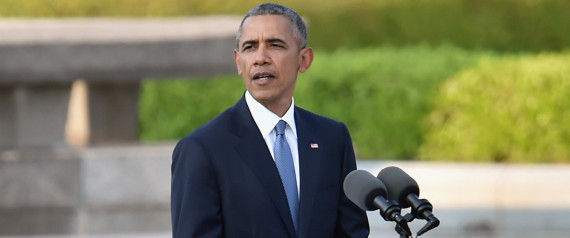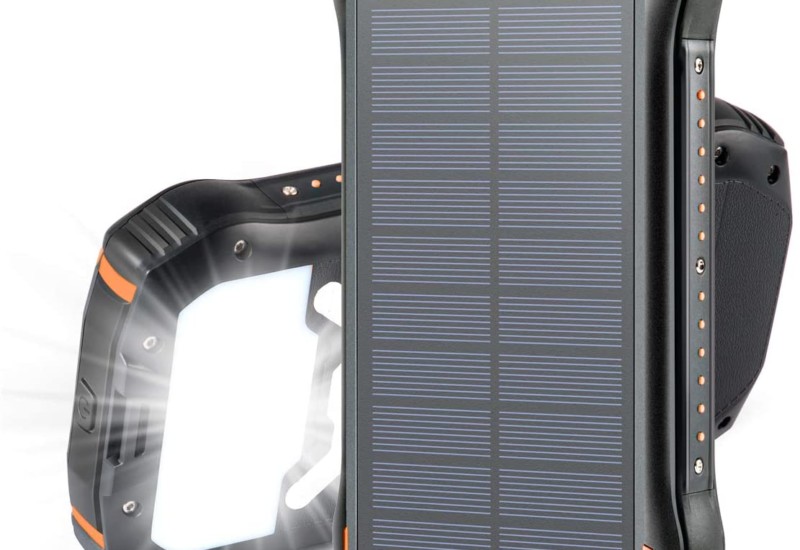オバマ大統領の広島スピーチ全文 「核保有国は、恐怖の論理から逃れるべきだ」を英語と日本語でまとめてみた

昨日は、オバマ大統領が、17分という長い間、スピーチを。
生放送だったので、ドキドキしながら見ました。
テレビ局のは、字幕ではなく、同時通訳だったのがちょっと残念でしたね。
せっかくの肉声が、全く聞こえないじゃありませんか。
もっとも、英語に堪能というわけではないので、声を聞いても、何を言ってるのかはわからなかったかもしれませんが、字幕で良いよね?と個人的には思った次第です。
では、昨日のスピーチ内容は、どんな内容だったのかを、英語と日本語で、まとめてみました。
全文載せるのは、英語の方のみです。
というのは、長いスピーチだったから。
とにもかくにも、スピーチの内容を見てみましょう!
オバマ大統領の広島スピーチ全文 「核保有国は、恐怖の論理から逃れるべきだ」を英語と日本語でまとめ
では、スピーチの英語の全文をご紹介しようと思います。
ここから↓
71 years ago, on a bright cloudless morning, death fell from the sky and the world was changed. A flash of light and a wall of fire destroyed a city and demonstrated that mankind possessed the means to destroy itself.
Why do we come to this place, to Hiroshima? We come to ponder a terrible force unleashed in the not so distant past. We come to mourn the dead, including over 100,000 Japanese men, women and children, thousands of Koreans and a dozen Americans held prisoner.
Their souls speak to us. They ask us to look inward to take stock of who we are and what we might become.
It is not the fact of war that sets Hiroshima apart. Artifacts tell us that violent conflict appeared with the very first men. Our early ancestors, having learned to make blades from flint and spears from wood, used these tools not just for hunting but against their own kind.
On every continent the history of civilization is filled with war, whether driven by scarcity of grain or hunger for gold, compelled by nationalist fervor or religious zeal. Empires have risen and fallen, peoples have been subjugated and liberated, and at each juncture innocents have suffered — a countless toll, their names forgotten by time.
The World War that reached its brutal end in Hiroshima and Nagasaki was fought among the wealthiest and most powerful of nations. Their civilizations had given the world great cities and magnificent art. Their thinkers had advanced ideas of justice and harmony and truth, and yet the war grew out of the same base instinct for domination or conquest that had caused conflicts among the simplest tribes, an old pattern amplified by new capabilities and without new constraints.
In the span of a few years some 60 million people would die; men, women, children — no different than us, shot, beaten, marched, bombed, jailed starved, gassed to death.
There are many sites around the world that chronicle this war — memorials that tell stories of courage and heroism, graves and empty camps, the echo of unspeakable depravity.
Yet in the image of a mushroom cloud that rose into these skies, we are most starkly reminded of humanity’s core contradiction — how the very spark that marks us as a species, our thoughts, our imagination, our language, our tool making, our ability to set ourselves apart from nature and bend it to our will — those very things also give us the capacity for unmatched destruction.
How often does material advancement or social innovation blind us to this truth? How easily do we learn to justify violence in the name of some higher cause?
Every great religion promises a path to love and peace and righteousness. And yet no religion has been spared from believers who have claimed their faith has a license to kill.
Nations arise telling a story that binds people together in sacrifice and cooperation, allowing for remarkable feats, but those same stories have so often been used to oppress and dehumanize those who are different. Science allows us to communicate across the seas, fly above the clouds, to cure disease and understand the cosmos. But those same discoveries can be turned into ever more efficient killing machines.
The wars of the modern age teach us this truth. Hiroshima teaches this truth. Technological progress without an equivalent progress in human institutions can doom us. The scientific revolution that led to the splitting of an atom requires a moral revolution as well.
That is why we come to this place. We stand here in the middle of this city and force ourselves to imagine the moment the bomb fell. We force ourselves to feel the dread of children confused by what they see.
We listen to a silent cry. We remember all the innocents killed across the arc of that terrible war, and the wars that came before, and the wars that would follow.
Mere words cannot give voice to such suffering. But we have a shared responsibility to look directly into the eye of history and ask what we must do differently to curb such suffering again.
Some day the voices of the Hibakusha will no longer be with us to bear witness. But the memory of the morning of August 6, 1945 must never fade. That memory allows us to fight complacency. It fuels our moral imagination, it allows us to change.
And since that fateful day we have made choices that give us hope. The United States and Japan forged not only an alliance, but a friendship that has won far more for our people that we can ever claim through war.
The nations of Europe built a union that replaced battlefields with bonds of commerce and democracy. Oppressed peoples and nations won liberation. An international community established institutions and treaties that worked to avoid war and aspired to restrict and roll
back and ultimately eliminate the existence of nuclear weapons.
Still, every act of aggression between nations, every act of terror and corruption and cruelty and oppression that we see around the world shows our work is never done. We may not be able to eliminate man’s capacity to do evil, so nations and the alliances that we formed must possess the means to protect ourselves.
Among those nations like my own that hold nuclear stockpiles, we must have the courage to escape the logic of fear and pursue a world without them. We may not realize this goal in my lifetime, but persistent effort can roll back the possibility of catastrophe.
We can chart a course that leads to the destruction of these stockpiles, we can stop the spread to new nations, and secure deadly materials from fanatics. And yet that is not enough, for we see around the world today how even the crudest rifles and barrel bombs can serve up violence on a terrible scale.
We must change our mindset about war itself — to prevent conflicts through diplomacy and strive to end conflicts after they’ve begun; to see our growing interdependence as a cause for peaceful cooperation and not violent competition; to define our nations not by our capacity to destroy but by what we build; and perhaps above all reimagine our connection to one another as members of one human race — for this too, is what makes our species unique.
We’re not bound by genetic codes to repeat the mistakes of the past. We can learn. We can choose. We can tell our children a different story, one that describes a common humanity, one that makes war less likely and cruelty less easily accepted.
We see these stories in the Hibakusha: the woman who forgave the pilot who flew the plane that dropped the atomic bomb because she recognized what she really hated was war itself; the man who sought out families of Americans killed here because he believed their loss was equal to his own.
My own nation’s story began with simple words. All men are created equal and endowed with certain inalienable rights, including life, liberty and the pursuit of happiness.
Realizing that ideal has never been easy, even within our own borders, even among our own citizens. But staying true to that story is worth the effort. It is an ideal to be strived for, an ideal that extends across continents and across oceans.
The irreducible worth of every person, the insistence that every life is precious, the radical and necessary notion that we are part of a single human family: that is the story that we all must tell.
That is why we come to Hiroshima, so that we might think of people we love, the first smile from our children in the morning, the gentle touch from a spouse over the kitchen table, the comforting embrace of a parent.
We can think of those things and know that those same precious moments took place here 71 years ago. Those who died, they are like us.
Ordinary people understand this, I think. They do not want more war. They would rather that the wonders of science be focused on improving life and not eliminating it.
When the choices made by nations, when the choices made by leaders reflect this simple wisdom, then the lesson of Hiroshima is done.
The world was forever changed here, but today the children of this city will go through their day in peace. What a precious thing that is. It is worth protecting and then extending to every child.
That is a future we can choose, a future in which Hiroshima and Nagasaki are known not as the dawn of atomic warfare, but as the start of our own moral awakening.
ココまで。
長いですよね~。
では、この文章を簡単に日本語でまとめると。
日本語は、こんな感じ。
「71年前の明るく晴れ渡った朝、空から死神が舞い降り、世界は一変しました。閃光と炎の壁がこの街を破壊し、人類が自らを破滅に導く手段を手にしたことがはっきりと示されたのです。
なぜ私たちはここ、広島に来たのでしょうか?
私たちは、それほど遠くないある過去に恐ろしい力が解き放たれたことに思いをはせるため、ここにやって来ました。
私たちは、10万人を超える日本の男性、女性、そして子供、数多くの朝鮮の人々、12人のアメリカ人捕虜を含む死者を悼むため、ここにやって来ました。
彼らの魂が、私たちに語りかけています。彼らは、自分たちが一体何者なのか、そして自分たちがどうなったのかを振り返るため、内省するようにに求めています。
~中略~
私たちは、人類が悪事をおこなう能力を廃絶することはできないかもしれません。私たちは、自分自身を守るための道具を持たなければならないからです。しか し我が国を含む核保有国は、(他国から攻撃を受けるから核を持たなければいけないという)「恐怖の論理」から逃れる勇気を持つべきです。
~中略~
世界はこの広島によって一変しました。しかし今日、広島の子供達は平和な日々を生きています。なんと貴重なことでしょうか。この生活は、守る価値があります。それを全ての子供達に広げていく必要があります。この未来こそ、私たちが選択する未来です。未来において広島と長崎は、核戦争の夜明けではなく、私たちの道義的な目覚めの地として知られることでしょう。」
引用元:沖縄タイムス&ハフィントンポスト
印象的だったのは、一人ひとりに語りかけるように、言葉を切りながら、坦々と語った所ですね。
個人的には、謝罪は必要ないと思っていたので、どういうスピーチを聞かせてくれるのかを楽しみにしていました。
そして、スピーチが終わった後、被爆者の皆さんと話をしたり、時折白い歯を見せながら、しっかりと会話をしているのには、好感が持てました。
色々な意味で、有史に残る大統領だと思いますね。
広島に来たことがすごいのではなく、何をしたかなのですよね。
そもそもが戦争を起こした時代の人間でないオバマ大統領が、謝罪というのはおかしな話ですし、それよりも、核の廃絶のスピーチをしてもらいたいという願いが、形になった感じだと思います。
テロの標的になるかも知れないとのことで、物々しい警備でしたが、それほど偉大な大統領ということかもしれません。
私は、特にオバマ大統領を支持しているわけではないですが、今回の訪問とスピーチは、後世に伝えるべき、重要なイベントだったと思います。
戦争を終わらせるために、核爆弾が必要だったとの認識は、世界でもあるそうですが、それでも核を使ったという事実は、決して正解ではなかったように思います。
でも、それを踏まえて、オバマ大統領のスピーチは、本当に素晴らしいものだったと思いました。
【New!】 オバマ大統領の広島スピーチ全文 「核保有国は、恐怖の論理から逃れるべきだ https://t.co/5vK75S0xA0 pic.twitter.com/B3quglhIob
— ハフィントンポスト日本版 (@HuffPostJapan) 2016年5月27日
日本語版なので、意味はわかりやすいですね。
素晴らしいスピーチ。伊勢志摩サミットそのものより、この文言を世界に発信できたことが大きな成果ではないか / “オバマ大統領の広島スピーチ全文 「核保有国は、恐怖の論理から逃れるべきだ」” https://t.co/aRyyNRiAQE
— B4たかし@ワル響コンファゴでした (@b4takashi) 2016年5月28日
「核保有国は、恐怖の論理から逃れるべきだ」が名言ですね。
オバマ大統領が、人類が自らを滅ぼす技術を作った、と言い、核兵器のない世界を追い求める勇気を持て、と言ったのは共感した。
5分の予定が17分になり、力強い演説だった。
ただし、原爆資料館を見たのが1…https://t.co/60Bax39xKT #NewsPicks— 田原総一朗 (@namatahara) 2016年5月27日
17分もの長い演説が、短く感じました。
広島・長崎への原爆投下を日米間の問題とは捉えず、より大きな普遍性へと昇華させるあたり、政治的にも上手いし、理想論ではあっても、世界が進むべき明快な方向性を示しているように思える> https://t.co/R3sFBTQtQf
— 各務原 夕@レッドファイッ! (@nekoguruma) 2016年5月27日
同感です。
それでは、オバマ大統領の広島スピーチ全文 「核保有国は、恐怖の論理から逃れるべきだ」を英語と日本語でまとめてみました。
英語を読める方も、そうでない方も、ぜひ一度全文をご覧下さいね。
起業の参考になるメルマガをご紹介!
スマクラのトレーズです。
現在は、ビジネスで稼げるように切磋琢磨中!
御手洗さんは、起業独立を目指す方にブログやメルマガを活用したビジネスをお届けしてくれています。
一日中家族と一緒にいる生活を満喫してみませんか?
好きな事や得意な事をデジタルコンテンツとして無料公開されているので、起業に興味がある方は参考にされて下さい。
無料でメルマガ読んでみる?














この記事へのコメントはありません。